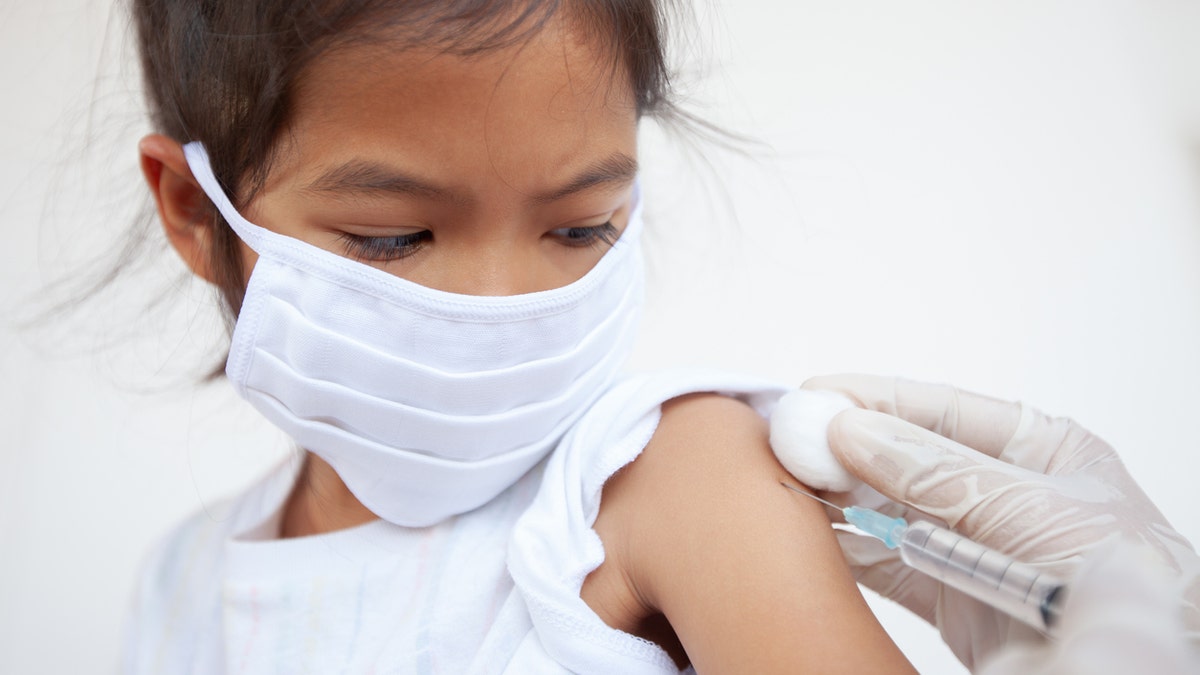Fox News Flash top headlines for November 9
Fox News Flash top headlines are here. Check out what's clicking on Foxnews.com.
The U.S. Food and Drug Administration on Monday released final guidance on improving diversity among participants in clinical trials.
“To further promote and protect public health, it is important that people who are in clinical trials represent the populations most likely to use the potential medical product,” Dr. Stephen Hahn, FDA commissioner, said in a news release.
CLICK HERE FOR FULL CORONAVIRUS COVERAGE
The first draft of the guidelines was issued in 2019. The FDA has been working for several decades to promote enrollment more reflective of the population, “challenges to participation in clinical trials remain, and certain groups continue to be underrepresented in many clinical trials,” according to the agency's webpage.

The U.S. Food and Drug Administration on Monday released final guidance on improving diversity among participants in clinical trials.
(iStock)
Diversity among participants in ongoing clinical trials for coronavirus vaccines has been a significant point of discussion.
Earlier last month, for example, Reuters reported that Moderna’s hired contractors had not enrolled enough trial participants from minority groups to see how well the vaccine works in these populations. Dr. Paul Evans, chief executive of Velocity Clinical Research in Durham, N.C., who was hired to test the vaccine at five sites, reportedly said the task of minority enrollment for “proper population balance is ‘notoriously difficult’” during any trial.
However, later in October, the company said that it was getting the necessary diversity it needed.
"The study includes more than 11,000 participants from communities of color, representing 37% of the study population and similar to the diversity of the U.S. at large," the company said. "This includes more than 6,000 participants who identify as Hispanic or LatinX, and more than 3,000 participants who identify as Black or African American."

The FDA said it's "important that people who are in clinical trials represent the populations most likely to use the potential medical product."(iStock)
In contrast, Black Americans account for roughly 13% of the U.S. population but are among only 5% of clinical trial participants, according to Pfizer, one of the leading companies developing a coronavirus vaccine, which cited U.S. Census and FDA data, adding that Latinx people account for roughly 19% of the population in the U.S. but they make up only 1% of clinical trial participants.
Pfizer announced on Monday that its coronavirus vaccine was found to be 90% effective in a trial that includes more than 43,000 participants, "with 42% having diverse backgrounds," according to the company. "Approximately 42% of global participants and 30% of U.S. participants have racially and ethnically diverse backgrounds."
Pfizer plans to enroll participants in the trial until the final analysis.
FAUCI CALLS PFIZER CORONAVIRUS VACCINE FINDINGS 'EXTRAORDINARY,' REPORT SAYS
In its final guidance, the FDA stressed the importance of including women, pregnant women, minorities, children and older adults, according to its final guidelines.
Recommendations included specific definitions of intended trial participants (also known as exclusive criteria), while broadening patients allowed to partake in trials' Phase 2, and enrolling clinically relevant populations (like kids, teens and enough women, among others).
Also, those running trials should determine which populations will clear a drug differently earlier on to adjust doses and be able to study the drug’s safety and efficacy across different groups, the agency advised.
In addition, the FDA recommended so-called “adaptive trials,” or trials that can be flexible to changes as things progress (i.e. expanding from a narrow to broader group of people after safety concerns are lifted). A recent example of an adaptive trial would be the World Health Organization's multi-country Solidarity trial, which dropped certain coronavirus treatments (hydroxychloroquine and lopinavir) over the summer over futility.
The FDA also advised avoiding delays in kids’ medicines by having broader programs, adding: enrolling older kids first, and younger ones later should only take place when there is a safety concern.

The FDA also adivsed avoiding delays in kids’ medicines by having broader programs. (iStock)
TEENS WHO PARTICIPATE IN EXTRACURRICULAR ACTIVITIES HAVE BETTER MENTAL HEALTH, STUDY FINDS
On another note, so-called “pharmacokinetic sampling,” or taking several blood samples over time to see how well the body is handling the drug, according to the National Institutes of Health, was recommended among pregnant participants, given it's safe for mom and baby.
Also, trials requiring "frequent visits to specific sites" may add burden for some participants, the FDA noted, which could interfere with jobs and other obligations, adding that “a mistrust of clinical research among certain populations also impacts enrollment.” Therefore, researchers should lower the need for on-site visits and opt for phone calls or emails when possible, consider sending nurses to participants instead of vice versa and use electronic consent forms when possible.
PFIZER CORONAVIRUS VACCINE NEWS 'SOUNDS PROMISING,' BUT LIKELY WON'T CHANGE TIMELINE, EXPERT SAYS
Finally, researchers should let participants know about reimbursements for travel and lodging expenses related to trial participation. Consider establishing trial sites in areas with more minorities and choose diverse providers because patients may prefer someone who shares the same background.
Aside from that, more community engagement, frequent recruitment events and public outreach could help in these efforts. Some drugs for rare diseases may face unique hurdles, but early engagement and re-enrollment may improve participation diversity, the agency said.
"Broadening eligibility criteria and adopting more-inclusive enrollment practices should improve the quality of studies by ensuring that the study population is more representative of the population that will use the drug if the drug is approved..." the FDA concluded.









































